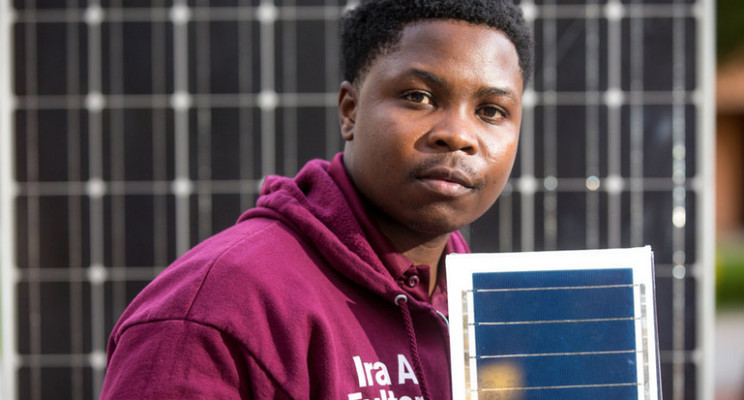
News & Resources
Why We Need More International Students

Before he launched Zip2, before he started SpaceX and Tesla Motors, South African native Elon Musk earned undergraduate degrees in economics and physics at the University of Pennsylvania. The 24-year-old’s next step was Stanford University to work on a doctorate in energy physics, although he deferred after two days to pursue his fortunes in the emerging internet.
Two decades later, it’s clear that the United States has significantly benefited because this Pretoria-born son of a South African father and Canadian mother sought to study in the United States. While few can match the business acumen and creative prowess of Musk, now an American citizen and multi-billionaire, millions of young people from around the world have been lured by the quality and promise of American higher education, as well as its potential to improve their lives. In the last year, according to the Institute of International Education, more than 1 million international students came to the US, including 329,000 from China, 166,000 from India and 61,000 each from Saudi Arabia and South Korea.
At a time when the current administration’s travel ban stopped visas from seven countries and created uncertainty more widely, it’s important to recognize how significant the impact may be on the international students studying here – and the institutions that both educate and depend on them. As these students have come to the United States to invest in their futures, American colleges and the nation itself have gotten a remarkable return on their investment.
In the 2015-2016 school year, the overall economic contribution of international students in the United States was $32.8 billion, creating more than 400,000 jobs, according to the Association of International Educators. The impact can be felt in every state in the country, including $5.2 billion in California and $3.9 billion in New York. The top 10 states – which includes Pennsylvania, Ohio and Michigan – experienced a $21 billion benefit, accounting for some 265,000 jobs. In my own state of Arizona, ranked 13th in the country, the economic contribution is $620 million and 8,500 jobs.
But this economic impact is only one piece of the more enduring and consequential effect of an internationally diverse student body. Our nation faces complex global challenges; tackling them requires bringing together talented problem-solvers from every corner of the US and the world. I am proud that our student body includes close to 13,000 international students coming from 135 countries. Their perspectives enrich the quality of dialogue in our classrooms and provide needed input in our scientific and technical research.
Consider the story of Ngoni Mugwisi, an electrical engineering major from central Zimbabwe. Now a senior at Arizona State, he often studied by candlelight growing up because of the unreliable power grid in his country. Recently awarded a Rhodes scholarship to study at Oxford, this talented young man is on a mission to help find solutions to Zimbabwe’s energy production and distribution.
But as much as Mr. Mugwisi has learned about engineering and entrepreneurship, other students have learned a great deal from him: His experience brought home the daily reality of unreliable electricity and the need to find creative solutions in response. Not only has he launched a project to extract ground water for wells using solar energy, he also started a student group called Africa Rises to promote African culture and dispel myths about his continent.
These are the kinds of experiences that enrich us all, without which we as a nation will be poorer, both culturally and economically. And likely less safe: We all benefit from Pakistani scholars, for example, who are seeking ideas to solve the rolling power blackouts in their country – efforts that will help Pakistan advance economically, providing greater employment and education to their young men and women and, in the process, become more stable and secure.
The United States is a leader in innovation, buoyed by the dynamism of our colleges and universities. We have the chance to continue this forward momentum as long as we remain committed to making the most of our world’s brainpower. I have seen how a diverse population of creative problem-solvers, bringing together the widest possible array of perspectives, positions us to maintain that leadership.
Choosing this path does not mean being naïve or ignoring the dangers that exist in our world. The more we engage globally and encourage the fullest possible intersection of people and ideas, the better equipped we will be to address the challenges that beset us.
Who knows how many more people like Elon Musk – or, for that matter, Russian-born Sergey Brin (Google) or French-born Iranian Pierre Omidyar (eBay) – may provide profound contributions to our country? Rather than face a dwindling population of international students at our colleges and universities – uncertain about their future and wondering whether they are welcome here – it should be our national goal to expand these numbers.